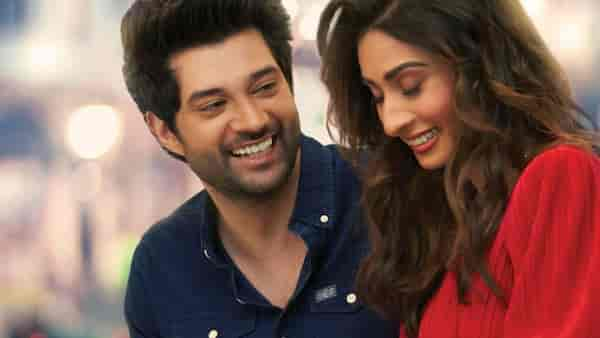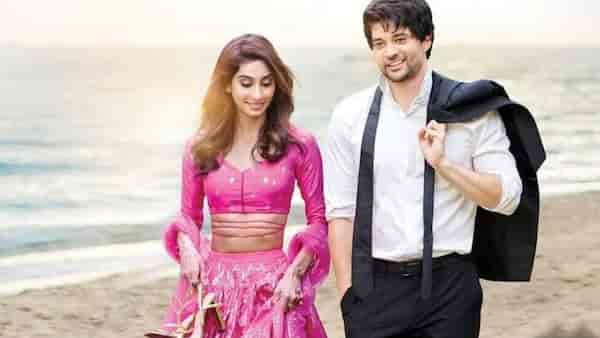Dono Review: Barjatya Baton Passes To A New Gen In This Breezy But Flawed Debut
Dono begins with an elaborate wedding taking place in Thailand, at which the bride's and the groom's friends, played by Rajveer Deol and Paloma Dhillon, find they have a spark of their own.

Last Updated: 02.35 PM, Feb 26, 2024
IT is always interesting to see a familiar voice reinventing themself. Earlier this year with Rocky Aur Rani Kii Prem Kahaani, Karan Johar examined his pro-conservative legacy through the premise of a disruptive love story. Something similar is afoot with Dono, the latest film bankrolled by Sooraj Barjatya. Directed by his son Avnish Barjatya, the outing witnesses the passing of the baton in more ways than one. Apart from being helmed by someone who represents a new generation in what is inherently a traditional production house, Dono marks the debut of Sunny Deol’s son Rajveer Deol and Poonam Dhillon’s daughter Paloma Dhillon.
On the surface, things look like an extension of everything we are familiar with. The narrative centerpiece is occupied by an elaborate arranged marriage. The people are nice, the couple is in love (think: Hum Aapke Hain Koun..!, Hum Saath-Saath Hain, Main Prem Ki Diwani Hoon, Vivah, Prem Ratan Dhan Payo). But in the background something else is brewing. The Thailand-based celebrations bring together the bride’s friend, Dev (Deol) and the groom’s friend, Meghna (Paloma) together, both of whom have been stuck in their lives for long.

To be fair, there is a pleasant breeziness in Dono which does not feel jaded. It could be the catchy title track (although the Shankar-Ehsaan-Loy album is forgettable), Paloma’s competent performance, or Deol’s eyes. There is something about the way the actor looks at the camera, or rather the camera looks at him. It fits. He has a caginess in his body language, an insouciance so deep-rooted that he reminds one of the young Imran Khan (although he is introduced in a tie-tying scene which feels straight out of Ranbir Kapoor’s 2015 film Tamasha) . This is constantly undermined by the way he delivers dialogue, which is so stilted that I will not be surprised if someone behind the camera was actually holding a placard with his lines.
There are other touches that work. I quite liked the setting of two young people finding solace in each other amidst the madness of an Indian wedding. Nothing feels pressing and there are no sweeping moments. They are drawn to each other because each gives the other the gift of attention in what is inherently a social-media age. Meghna listens to Dev when he confesses that he has been in love with his friend Alina (Kanikka Kapur), the bride whose wedding he has come to, for a decade. And he lends his ear when she tells him about a controlling past relationship that took longer for her to leave. It is equally impressive what Avnish tries to do (on paper at least). He takes the most familiar set-up and subverts it a little. Unlike the mainstay Barjatya films where goodness feels like a contagious condition, Dono puts the tradition and the people upholding them under the scanner.

The problem is a large part of it is only insinuated. Although in his debut film, the young filmmaker tries pitting tradition against modernity, he is either unconvinced about it himself or too scared to go the whole hog. As a result, the little leaps that he takes, like a bride getting cold feet on seeing the conservative nature of a joint family (a holy grail in Barjatya films) or a father-son conflict (a rarity again in their universe) do not translate into anything effective. They are settled with one scene, one gesture which further reduces the intent of including them in the first place as tokenistic.
This appears to be the offshoot of a larger problem which is the writing (Manu Sharma and Avnish are credited). Dono frequently loses track of what it wants to say and who it wants to say this about. Thus, we get one brief scene of Dev having a meltdown after his father taunts him (the issue is always the way he cannot knot a tie, although the reason is Dev’s unsuccessful career as a start-up entrepreneur), a chunk of the film is dedicated to Meghna walking whilst wearing lehengas, and there are unending portions of insipid gags which culminate in songs. A proposal moment is so drawn-out that by the time it is depicted, there is no charm left in it. Ditto for another scene when Dev and Meghna go out shopping for something, and an unimaginative train metaphor is milked for every crisis.
It is no coincidence that with Uunchai last year, Sooraj Barjatya himself had taken a leap to keep up with the times. Centred on a group of old friends who plan to trek to the Everest Base Camp to honour the last wishes of another friend, the film batted for the wisdom of age. There was reiteration but there were also glimpses of the filmmaker willing to challenge his beliefs (like poking holes in the idea of old, wise men). Granted it was largely uneven but the pockets of confrontation in Uunchai felt more compelling than Dono’s poor resolve.

 Premium
Premium